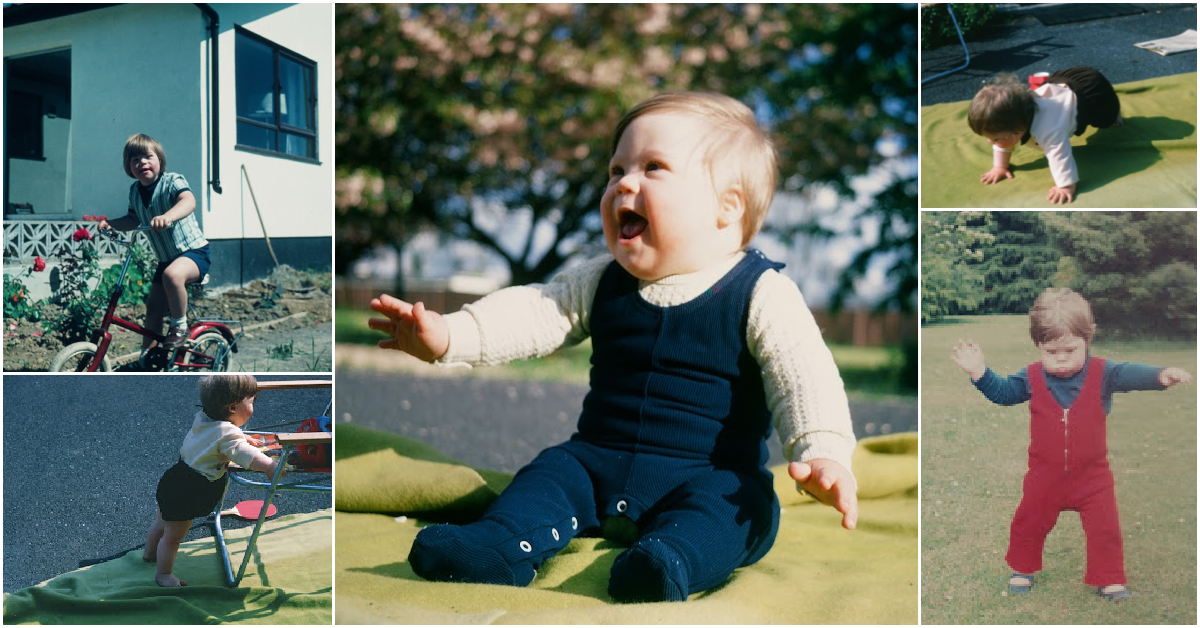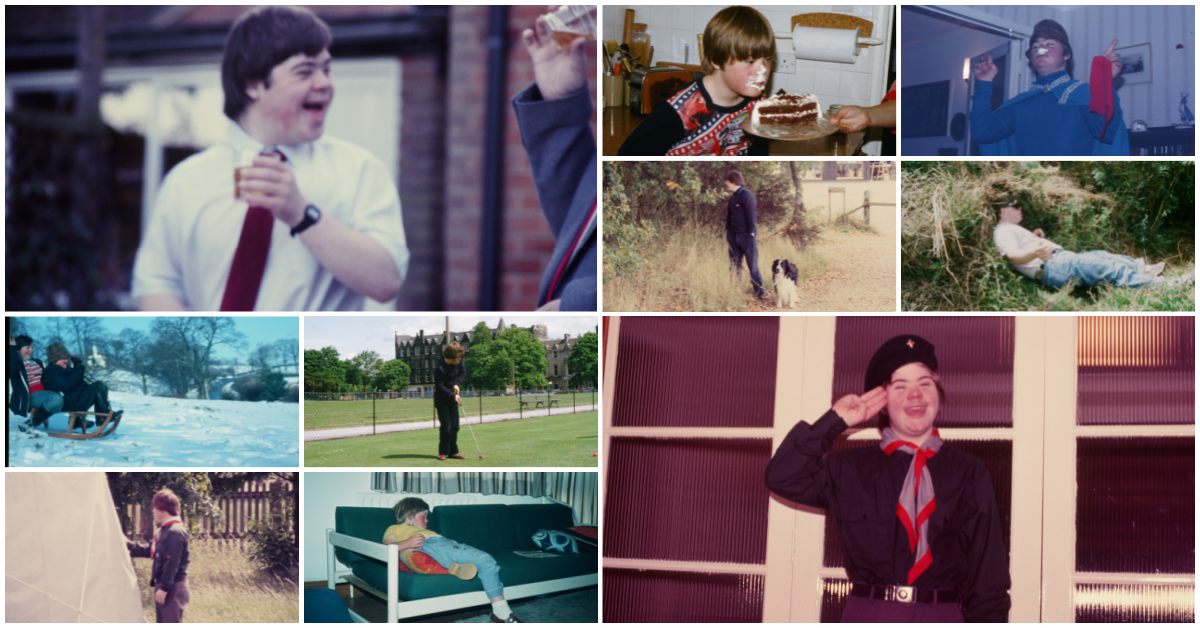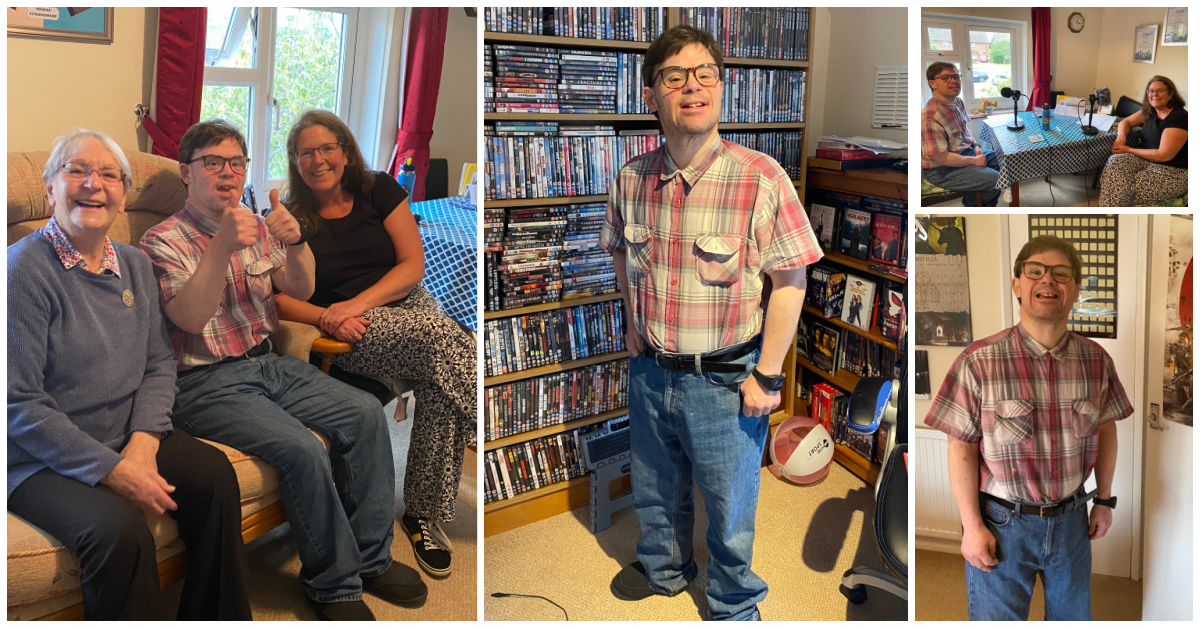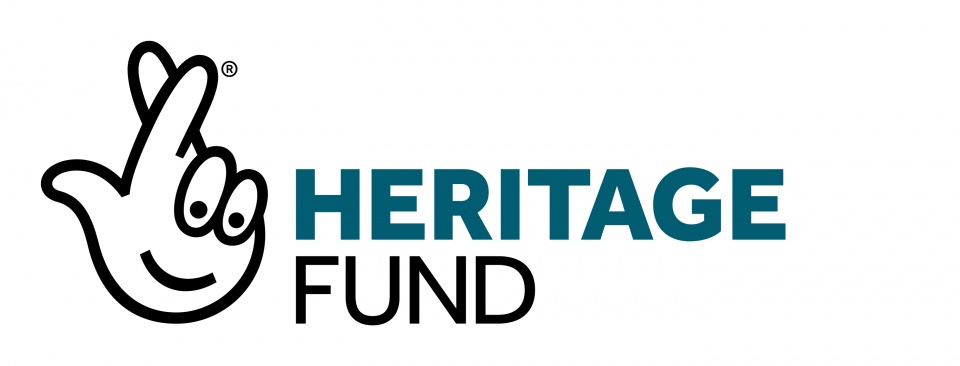Richard Morgans, 50, is a self-confessed Thespian. He has appeared in a number of productions, performing with the Proteus Theatre Company for many years. Richard lives independently with his flatmate, and is very close to his family. He leads a very busy life, and is currently writing a play which he hopes to see performed on stage. He’s also a huge Star Wars fan.
Hear Richard talk about his life, accompanied by his sister Fiona
Richard’s mum sent us a timeline of the important events in his life.
1971 – August 19th, born in Dublin. GP recommended we put Richard in a home in a few years. We lived in Athy, a country town in Co. Kildare and Richard has an older brother and sister. He was an adorable baby, and thrived and developed well in all areas. He was walking before he was two-years-old. We had help and support from a local family so that I could work three to four mornings a week.
1975 – Richard attended a private mainstream playgroup.
1976 – Richard briefly attended the two-class school with his siblings. Plans for Special Educational Needs started there.
1977 – Richard attended a one-teacher special class opened in the town for all age groups. Concentration and speech developed greatly with books, games and watching Saturday TV for two hours – Richard enjoyed Sesame Street. He often went to stay with a lovely Irish family. We could then take his siblings on camping and boating holidays. Richard’s father had to change jobs and return to UK.

1978 – The family moved to Bury, but every year Richard returned to his favourite family in Ireland for a long holiday, flying as an unaccompanied child.
1978 to 1984 – Richard attended Limefield Special School. He always played with local children, joined the Cubs, had piano lessons and did Riding for the Disabled.
1984 – Richard moved to Basingstoke and had an IQ of 83. He was recommended for mainstream education. We visited a few secondary schools, but the preferred school was Dove House.
1984 to 1987 – Richard attended Dove House Special School.
1987 to 1990 – Richard attended Queen Mary Sixth Form College’s recently set up Learning Support Department. He was well integrated in tutor groups, had various work experiences and joined the college drama group.
1990 to 1993 – Remploy supported Richard’s first job as a porter in the maternity hospital from 8:30am to 4:00pm.
1993 to 2010 – The Shaw Trust supported Richard as a General Assistant at Turnergraphic Printing Works from 8:30am to 1:00pm. He cycled across town daily in all weathers to get to each job.
Richard had a full life with mainstream drama group, sports centre, keyboard lessons, taking part in concerts, watching TV and videos, and extended family holidays with cousins. He went to the cinema every week, producing a film review for work and clubs. Richard was renowned for good his manners, cheeky humour and good nature. He had a great love of words and word play. Speakeasy Advocacy weekly evening club formed and planned their own programme. Richard even played Father Christmas at the local Down’s Syndrome Association party for years. He performed in many productions with the Proteus amateur players.
2005 – Richard was keen to live independently in his 30s. Him and friend moved into a two-bedroom flat. They still live there now with support.
2006 – Richard and his flatmate received the Shaw Trust Award at the Savoy, for Community Service and Independent Living.
2010 – Turnergraphic closed down, which was a big blow after 17 years of working there. The Shaw Trust also ceased to arrange supported employment and stopped their holidays for clients. A shame as Richard and his flatmate went to many European resorts and to a Butlins.

2011 – Richard celebrated his 40th with a birthday party disco, but sadly no job. He was shopping independently but buying unhealthy food, compulsively buying DVDs and hording. He also began to experience abdominal problems, spending long sessions in the toilet.
2012 – Richard started to take part in the Down’s Syndrome Association’s Cambridge University research studies into memory loss and early dementia in people who have Down’s syndrome. This involved many visits.
2013 – Richard started a three-year training course at the Café Dome project. He used the bus two days a week to get there which was excellent. He loved serving front of house.
2016 – Richard began to lose confidence and kept it a secret that he had swelling (lymphedema) in his testicle. He needed a big operation at University Collage Hospital London. He impressed staff and fellow patients with his good nature and humour. He lost weight whilst recovering with his parents.
2017 – Richard completed his Café Dome training but no job followed. He had a few brief voluntary jobs and then joined Mencap for activities. He spent long hours on his own in the flat. He started writing huge imaginative plays on his computer.
2018 – The Down’s Syndrome Association’s WorkFit employment programme helped find morning work for Richard at the new Police HQ Café. He was unsure at first and out of habit of getting up for work, and needed help to get started. He built it up to two mornings a week. Obviously he was not functioning as capably as before, but was well accepted and started to be proud of his work. His sister Fiona had started to take him shopping and his health and diet improved.
2019 – Richard was about to start being paid at the Police Cafe when Covid struck. He stayed on his own in the flat supported hugely by his sister. She kept his spirits up and introduced many activities. He also started pre-dementia assessments.
2021 – Following a long delay in re-assessment, Richard was diagnosed with dementia in August. His physical health is very good, and he is looking slim and handsome. His support hours have increased to 11 per week, and he’s started a better routine started with more Mencap activities. ‘Independent Living’ sounds excellent, but can only happen with a huge amount of additional family input and perpetual monitoring of services.


